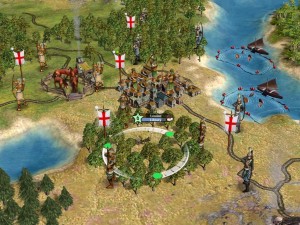As parents, we can’t help but worry about the effects that digital games have on our children. Will playing too many digital games affect their studies? Are these games too violent? Will they harm our children’s eyesight? Do they encourage thinking skills?
For those of us who are digital immigrants, it can take a big leap of faith to understand our digital natives and to trust their instincts.
It’s not a commonly known fact, but IQ scores in all modern media-based societies have been increasing year on year for the past 50-60 years, and seem to be accelerating over the last 15 years.
This intriguing fact, known as the Flynn effect, named after the New Zealand-based political scientist and intelligence researcher James R Flynn, completely turns on its head the widely-held opinion that popular culture, which appeals to the lowest common denominator in society, has been dumbing us down.
Interestingly, the largest gains have appeared in test scores for fluid intelligence, which is the ability to reason and deal with complicated factors and work out a solution to the problem, in other words to create meaning out of confusion.
It is this kind of problem-solving skills that modern video games tend to sharpen. By inviting players to make sense of their environment without providing an explicit set of rules, video games encourage perception and lateral thinking.
In his 2005 best-seller, Everything Bad is Good for You, author Steven Johnson argues that video games, violent or not, are making our children smarter.
Today’s games are a far cry from the early computer games like Solitaire. Marc Prensky, founder and CEO of game-based learning company Games2train, calls them “complex” games that typically require tremendous effort and tens of hours of concentrated attention to master.
According to Prensky, complexity matters. “Today’s complex games are something else – a new species of game. It is a new animal,” he says.
Examples of complex games are Sim City, Civilization IV and Rise of Nations where players build bigger and more complicated cities or civilizations; Harry Potter and Lord of the Rings where players confront harder and more challenging enemies; and the Tycoon games like Airport Tycoon, Roller Coaster Tycoon, Cruise Ship Tycoon and Mall Tycoon where players manage all aspects of different businesses.
Other complex games include Myst and Riven which challenge players with puzzles that keep getting more and more difficult; World of Warcraft, City of Heroes and Everquest which present quests that keep getting ever more challenging; and Age of Empires and Age of Kings where harder and harder campaigns need to be waged.
Prensky explains that in complex games, players are faced with decisions at every level. They need first of all to choose the game character that they will be, often choosing a race, profession, religion, gender, guild and whether they are on the ‘good’ side or the ‘dark’ side. All choices will then go into determining the type of game experience that the player will have.
Then there are the ethical dilemmas and choices, he adds. Players need to think hard about many things including the consequences of their actions, about which side they want to take and about whether they will be better off taking a direct, more aggressive route or a circuitous and furtive one.
Children get immersed easily in these complex games because they have almost instantaneous feedback to their decisions as well as full control over their environment, something that is usually missing in their day-to-day lives where adults are often telling them what to do.
It was the advent of the computer system that opened the way for these types of complex games that are full of what-if scenarios, to be developed. Highly advanced artificial intelligence technology also allowed for something called adaptivity to be built into the games.
Adaptivity is an important element of these games because it keeps players in the ‘flow’ zone. Flow is when there is balance between the level of difficulty of the task and the skill of the player.
Mihaly Csikszentmihalyi, a psychology professor at the University of Chicago acknowledged as the architect of the concept of flow explained in an interview with Wired magazine: “Flow is being completely involved in an activity for its own sake.
“The ego falls away. Time flies. Every action, movement, and thought follows inevitably from the previous one, like playing jazz. Your whole being is involved and you are using your skills to the utmost.”
A complex game also has compelling goals. Instead of aiming to learn history, for example, children focus on being heroes and saving the world; and inadvertently they often end up … learning history.
Dr Kurt Squire, an assistant professor at the University of Wisconsin-Madison studied people who played a lot of historical simulation games and found that players used historical terms and concepts from games, and used the games to think systematically about things, especially history.
“Every person I’ve met who has played Age of Mythology or similar games has checked out a book from the library based on their game play,” he said.
Some games, like The Sims and its later editions, are deliberately open-ended in their goals, leaving players to set these up for themselves. “It hardly needs mentioning that the goals we set for ourselves are the ones we are most motivated to reach,” Prensky points out.
Open-endedness is a factor in the strong appeal of Grand Theft Auto, that controversial video game that on the surface is full of violence and bad language, and which parents feel is far from educational. This game is, in fact, one of the most complex with the most to offer, according to Prensky.
Ben Sawyer, president of Digitalmill, a company that works on gaming projects, agrees: “GTA is interesting because it allows the player a lot of freedom in how he solves problems.”
Game advocates like Dr Squire argue that with MMO or Massively Multiplayer Online games like Everquest, World of Warcraft and Toontown Online players get to cultivate better social skills.
In contrast to the picture of anti-social kids holed up in their bedrooms with no friends that adults often have of gamers, multiplayer games help children develop friendships and leadership skills. “Games can be profoundly social. Most of us game as a way of connecting with friends,” explained Dr Squire.
Video games present new styles of learning and are opening up the way for teaching things like systems thinking and experimental problem solving.
If you enjoyed this article, you might also like Video Games CAN Educate.










